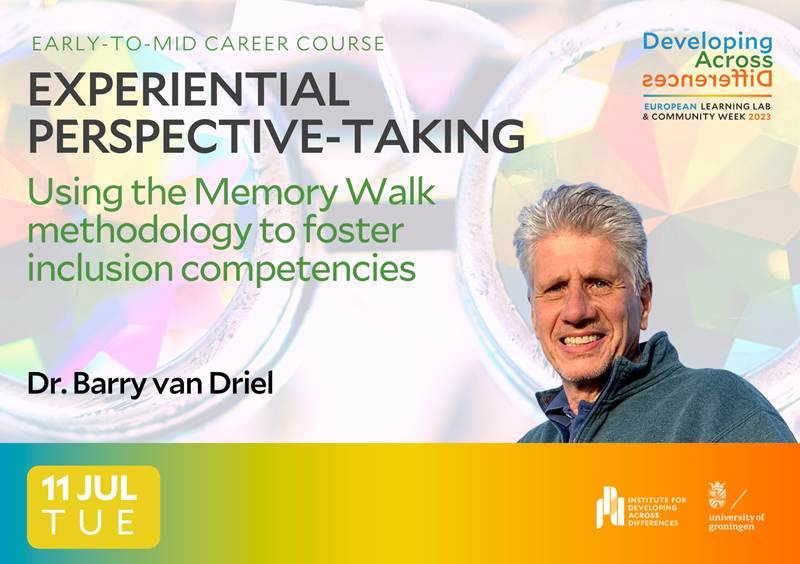Developing Across Differences: Experiential Perspective-taking

Using The Anne Frank House’s Memory Walk methodology, this course supports early-career (and all) practitioners in strengthening their abilities to facilitate transformative perspective-taking and expand their inclusion competencies toolkit.
This highly experiential methodology is one in which participants engage in outdoor learning in order to reevaluate their physical and social environment as a means to also (re)consider seen and unseen contexts that may exist in their workplace, classroom and/or community—and how they operate in them.
Why Attend?
Join this course to learn from a multiplier perspective how The Anne Frank House’s Memory Walk methodology works. Barry Van Driel, who co-initiated the approach, will explore, through a learning-by-doing approach, how to use and adapt the methods and tools to create transformative learning opportunities for your participants (whether they are corporate employees, students of all ages or community stakeholders) to improve their ability to realize and take into consideration perspectives other than their own.
This method’s highly experiential, outdoor learning approach encourages participants to learn in ways that are transformative and resonate long after taking part in the program. In it, we explore how to help participants understand how events may be remembered differently and (mis)represented in local symbols/monuments, and how this exercise relates to contemporary questions of exclusion and inclusion in our everyday environments.
In reflecting more critically on where symbols/monuments in the immediate environment come from, how they can be interpreted, and what they reveal about power relationships, dominant ideologies or narratives, and missing stories, participants develop valuable awareness, observation and perspective-taking skills that can then be transferred and applied in their everyday settings.
This course will enable you to strengthen your skills as a multiplier and facilitator by introducing you to creative new activities, providing opportunities for critical reflection and discussion with faculty and other early-career professionals, as well as expanding your range of tools to promote experiential perspective-taking.


| Last modified: | 25 January 2023 3.04 p.m. |

